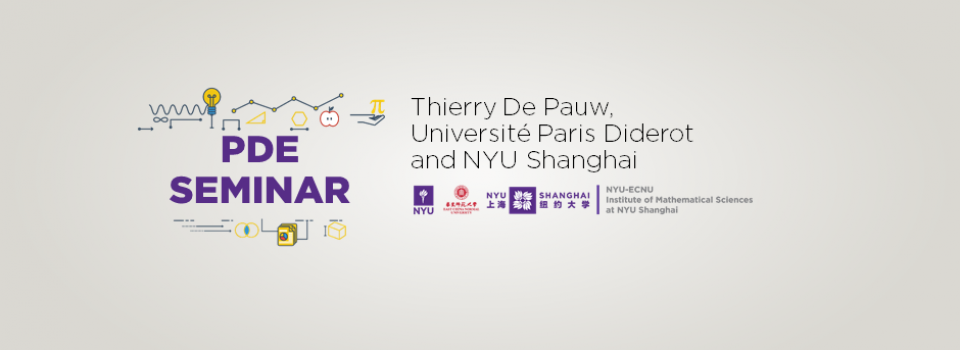
ABSTRACT OF THE TALK
Lecture I: In the first of this series of four lectures I will define and discuss semi-algebraic sets. Those subsets of Euclidean space are defined by finitely many polynomial equalities or inequalities. We will look at the Tarski-Seidenberg Theorem from a geometrical point of view, i.e. the cell decomposition of semi-algebraic sets. This further leads to axiomatic o-minimal structures, also called tame structures.
Lecture II: In the second lecture we will discuss other examples of o-minimal structures, mostly the globally subanalytic sets, which will involve the Weierstrass Preparation Theorem and a brief mention of Gabrielov’s Complement Theorem. We will look at the question whether one can complete an o-minimal structure by adding solutions to Pfaffian differential equation systems, or by adding the graph of the exponential.
Lecture III: In the third lecture we will explore the modulus of continuity of definable functions, and the Lojasiewicz inequality. This leads for instance to the existence of integral curves of finite length of a singular analytic vector field. Whether the integral curve itself is definable is an open question, and we will mention the solution of Thom’s conjecture. This is a good time to note that derivation preserves definability, whereas antiderivation doesn’t, and to mention partial positive results.
Lecture IV: The last lecture will discuss links to variational problems, such as: Marstrand Theorem; nodal sets; Simon-Lojasiewicz inequality and applications to PDEs; the distance function and geodesics of definable sets; isoperimetric inequalities on definable sets.
BIOGRAPHY
Thierry De Pauw is a Visiting Professor of Mathematics at NYU Shanghai. He is also Professor at the Université Paris Diderot - Paris 7 and Honorary Maître de recherches at the F.N.R.S., Belgium. Professor De Pauw’s research interest is Mathematical Analysis. He specializes in Geometric Measure Theory, a branch of fundamental mathematics concentrating on Geometric Variational Problems, of which the paradigm is the Plateau Problem. It consists of studying the geometrical complexity of soap films and soap bubbles, including those in infinite dimensional space. During his career, Professor De Pauw has been a long-term visitor at University College London in England, Université Paris-Sud in Orsay, France, and Rice University in Houston, Texas. He was awarded the Jacques Deruyts prize (2004-2008) from the Royal Academy of Belgium.
Seminar by the NYU-ECNU Institute of Mathematical Sciences at NYU Shanghai


